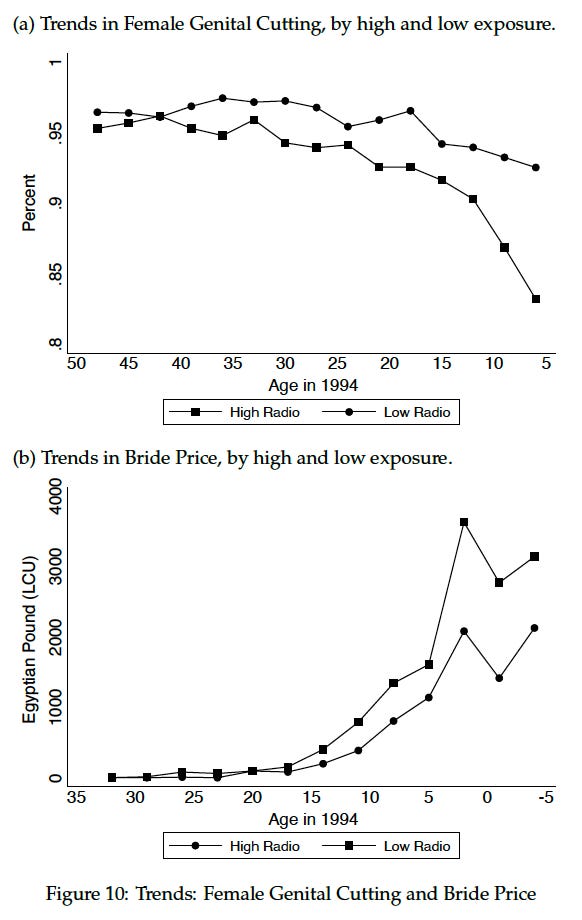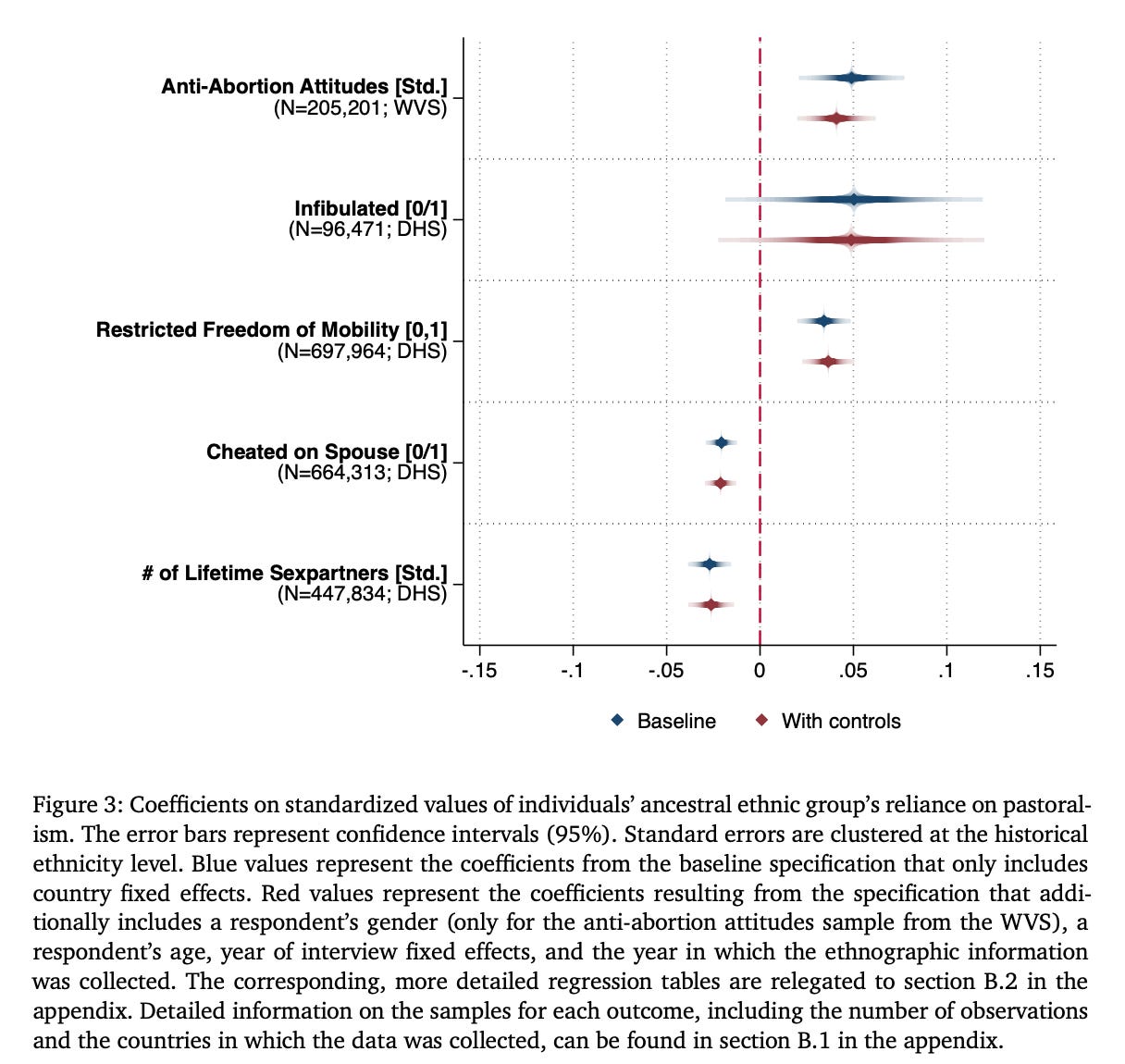What Would Reduce Female Genital Cutting?
Over 230 million women and girls have had their genitals cut. This may include the removal of the clitoris, or infibulation (where everything is removed and the vulva is sewn up, only to be ruptured by the bride groom).
Today, I was asked how to end female genital cutting (FGC).
What would you reply?
All the above may be effective in reducing FGC.
But here’s my concern…
FGC is a valuable signal of chastity
Infibulation literally prohibits intercourse. Even after her stitches are ripped apart, sex is still extremely painful. Getaneh Mehari’s research in the Somali region of Ethiopia reveals that FGC is valued because it preserves virginity:
“Girls who do not undergo Gudnika Faronika [infibulation] are viewed as morally weak and uncontrolled and thus a dishonor towards the family reputation …those who miss the mark of pre-marriage virginity check may face social isolation, become unqualified for marriage, and in some cases, ignored by their own family. In addition to marriage denial, girls who don’t undergo circumcision would face insulting songs” (50 year old, female community leader)
“Most mothers say Gudnika Faronika is good for making girls clean and keeping them virgin until marriage. Therefore, the practice is highly favored as culturally right as it upholds girl’s virginity… If a girl undergoes Gudnika Faronika [infibulation] she is considered as halalen or clean. If a girl remains uncircumcised, she would be considered as haram or unclean and she will be isolated from the community. (16 year old girl)
Ethiopian Somalis are pastoral, female education is low, contraceptive use is low, and infibulation is very high. In neighbouring Somalia, there has been zero progress in reducing female genital cutting.
Anke Becker shows that if a woman’s ancestral ethnic group relied on pastoralism, she is more likely to be infibulated, oppose abortion, face mobility restrictions, and have fewer sexual partners. Infibulation, anti-abortion, mobility restrictions, and female monogamy go hand in hand because they achieve something highly valued by many pastoralists: female virgins, who will bear multiple children.
FGC reflects desire for female virgins
As long as virginity is valued by grooms, it will give brides respectability, be rewarded in marriage markets, and attract larger dowries. If a bride’s parents do not infibulate their daughter, they may adopt other means to the same ends. These might include cousin marriage (to remove information asymmetries), child marriage, or mobility restrictions.
If you narrowly focused on FGC, and saw that it is very low in Niger, you might infer that they do not prize virginity. In fact, FGC appears to have been substituted by child marriage. Both are cultural innovations to the same end.
Across Africa, women who belong to ethnic groups that practise bride price are also 13-16% more likely to be cut. Suzanna Khalifa’s maps below are striking.
The Egyptian Ministry of Health sponsored an anti-Female Genital Cutting (FGC) campaign from 1994 to 2003. Suzanna Khalifa finds that women exposed to this campaign were less likely to be circumcised and received a lower bride price. But parents also substituted FGC with pre-marital virginity tests and early marriage.

Progressive interventions can lead patriarchs to tighten restrictions
After Saudi wives could drive, many husbands increasingly pulled the breaks and effectively impounded their wives. Many were likely concerned for “kalam al-nas” (what will people say?). Driving was only permitted if chaperoned.
In India, legal reforms to increase female inheritance rights actually led to more cousin marriage and lower female employment.
Indian women who have more education or higher earnings than their husbands have the highest likelihood of frequent and severe violence.
Gender sensitisation and Self-Help Groups in India led to women being publicly humiliated by their own husbands.
TLDR
I am not dismissing interventions to end FGC. But it may be useful to think more holistically. As long as female virgins are valued and rewarded with hefty dowries, parents may innovate to achieve this same goal. The challenge then is to understand country-specific binding constraints towards gender equality. Why is female virginity so important in that place, and what’s driving change?
Stay tuned for my forthcoming essay on why pastoralists tend to safeguard virginity.










According to the map (figure 14 from Khalifa 2022), genital cutting is more common in southern Nigeria (Christian and agricultural?) than in northern Nigeria (Muslim and mostly pastoralist?). Do you know why is that?
Can you also write about why men in some culture are so obsessed with virginity while not so much in other cultures? Does it have anything to do with birth control or the healthcare system?